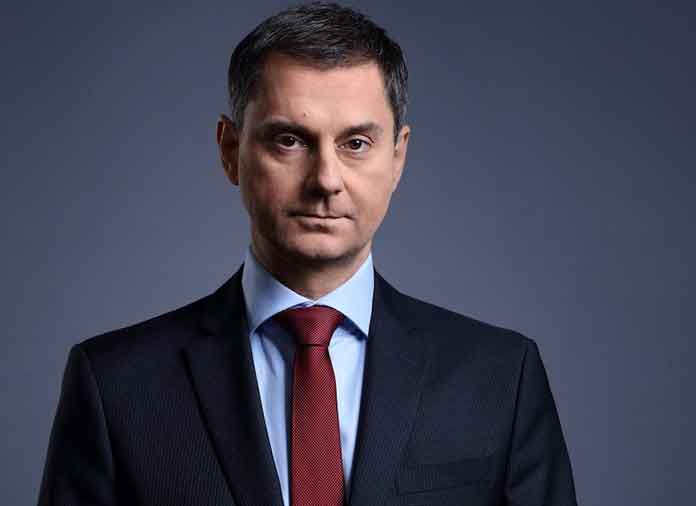Greek Tourism Minister Harry Theoharis discusses the effects of Covid-19 in the tourism industry and its impact on the country’s reputation, politics, and economy.
Exclusive interview: Vana Antonopoulou
Up until 2020, Greek Tourism was indeed thriving: 20.8% contribution to Greece’s GDP; 21.7% of total employment in the country; over €18 billion income from inbound tourism in 2019 alone. Suddenly, a global pandemic put a stop to most of the activity and all but bankrupt the sector. And turned previous efforts to further boost the country’s potential as a premium destination into an epic Covid-19 survival affair. Mr Harry Theoharis, Minister of Tourism, is spearheading the recovery project.
Tourism is a significant industry for Greece. In 2019 alone, its revenues exceeded €18 billion, while it contributes to approx. 20.8% of our country’s GDP. What are your expectations for this year?
Tourism is undoubtedly Greece’s “heavy industry”, with the sector’s contribution to Greece’s GDP being particularly large. Therefore, we all understand its significance in the country’s economy and especially for a very large percentage of the Greek population, which is directly or indirectly linked to it. This has been a difficult year. The virus still exists, and the government is trying to manage the difficult situation. The most important thing is to shield the entire country with a protection grid that will be created through vaccinations and, of course, tests for everyone visiting. As for the 2021 objectives, I will keep stressing: our main goal for this year is not so much quantitative, but qualitative.
So, with the knowledge and experience of last year’s successful opening, paired with the vaccination program and rapid tests, we are optimistic that this year will be better than the previous one.
What role should Greek tourism play in the post-Covid era?
The coronavirus era demonstrated how many problems a global pandemic can create. Both the experience and knowledge we have gained, together with the defences we have successfully built against such a dynamic situation, will be important weapons for the next day of tourism. We now have many weapons in our arsenal and, of course, the will to develop the productive model of tourism, in a more targeted manner, in more markets, and in a better way. Sustainability, digitization through the Recovery Fund projects, and education are the main pillars of our policy.
Do you see an increase in tourism in mainland Greece? Because, usually, people prefer the islands…
Undoubtedly, car tourism is the “key” to a very important part of the country’s tourist destinations. It provides a tourism “lifeline” to Northern Greece. Meanwhile, border stations operate continuously, and a constant effort is made to ensure that visitors to Greece enter with the greatest ease, while at the same time complying with all the required measures and formalities. It is worth noting that, regarding recent traffic, on Saturday 26 June –the day with the highest flow– we had an increase of 23%, while more than 20,000 people entered our country by road from our northern borders.
“Greece offers endless opportunities for various types of tourism, which can bring significant economic benefits to local communities.”
Nowadays, people are turning away from classic vacations, and instead are looking for “experiences”. Could Greece offer these alternative types of tourism? In what way?
With the main motto for Greek tourism being “All you want is Greece”, the triptych of people, values and experiences comes to the fore. Their combination creates a modern, quality product, which places our country among those with the greatest impact in the tourism sector. In no way do we leave behind the values and importance of the typical forms of tourism, but we are instilling a modern approach to create a comprehensive experience, keeping in step with the times while putting man at its heart.
We are seeing a rise in alternative forms of tourism, such as agritourism, gastrotourism, enotourism, etc. Where does Greece stand regarding these trends?
From the first moment we took over the leadership of the Ministry of Tourism, we set as key objective the promotion of alternative forms of tourism, which contribute significantly to the extension of the tourist season and the establishment of our country as a twelve month destination. Many people are unaware that Greece offers endless opportunities for various types of tourism, which can bring significant economic benefits to local communities. Our actions are therefore aimed in this direction: promoting alternative forms of tourism, such as medical, religious, gastronomic, etc.
Furthermore, alternative forms of tourism, serving the objectives of sustainable development, are high on our agenda and are the key to breaking away from the image that tourism in Greece revolves around the sun and the sea. All of this is included in our long-term, 10-year plan, which we will gradually have the opportunity to implement after the end of the Covid-19 crisis.
What about extending the tourist season? Could special interest tourism play a role in this?
We must not forget that our country is, at the moment, one of the world’s leading destinations, which is mainly due to the sense of security that we have worked hard to ensure all winter long. We must be able to provide and further develop all types of tourism and we intend to do so. Because although we do have the potential, some forms of tourism, which could be very lucrative for our economy, have not been exploited to the extent that they should have been over the years. Our efforts, therefore, our proposals, such as the Tourism Destination Μanagement and Μarketing Οrganisations (DMMOs), aim to further promote specific forms of tourism that will result in a twelve-month season with positive results for the Greek society and economy. We intend to exploit other destinations, such as, for example, mountain tourism, a year-round activity for which Greece is not so well known.
How could the State contribute to the development of these alternative forms of tourism?
The most strategic and essential issue of the draft law that we submitted to public consultation –a reform bill that “looks” to the future and which will change the development of tourism in our country– is the creation of a framework regarding Destination Management Organisations. What we are asking of the local communities, the local authorities, is to strategically target and develop continuously and consistently tourism in each and every region. This will be achieved by the above-mentioned Organizations. However, without, I must stress, creating any new Organizations, but by using an existing framework within the Ministry of Interior. So, therefore, at zero cost to the Greek taxpayer, we are essentially transforming existing entities into Organizations which, if the local community so decides, will be actively engaged in the development strategy. The result is that both the promotion and marketing plans of each region will be in line with the forms of tourism it wants to develop. There must be consistency in strategy and promotion.
How could we link the above forms of tourism to Greece’s production and export performance?
I will answer your question by citing a specific example: Agri-tourism, which can be linked to the sale of products and can contribute to the wider social and economic development of a region. How? Through the participation of local people in a new production process, while improving the quality of products.
The development of agri-tourism contributes positively to:
• Ensuring supplementary income for rural families;
• creating new jobs through the establishment of agri-tourism businesses in the field of hospitality or the production and distribution of agri-tourism products;
• and ultimately, retaining the rural population in the countryside.
One of the main objectives set from the outset by the government of Kyriakos Mitsotakis and the Ministry of Tourism is the strategy for the development of sustainable tourism, with particular emphasis on regional development. The adoption of the principles of sustainability and the interconnection of tourism with the environment and nature, is our primary target.
The Ministry of Tourism, following sustained efforts for a long time, has been creating, updating and developing a framework for tourism, in order to provide the right incentives and tools for farmers to benefit from agritourism. You see, for many years, agritourism had not been developed on a firm foundation and our country’s potential has not been exploited. In fact, agri-food is included in the objectives of the Recovery Fund and will have and an important role to play in the promotion of Greek tourism in the near future.




















